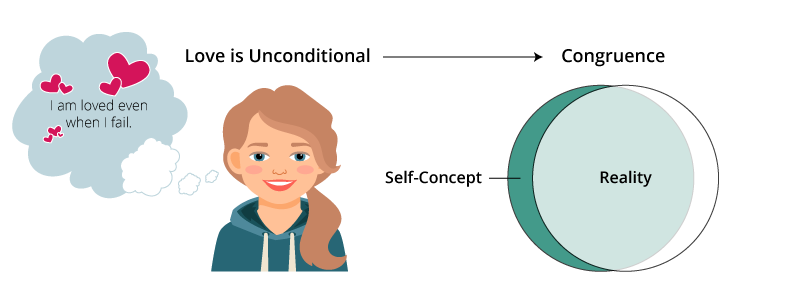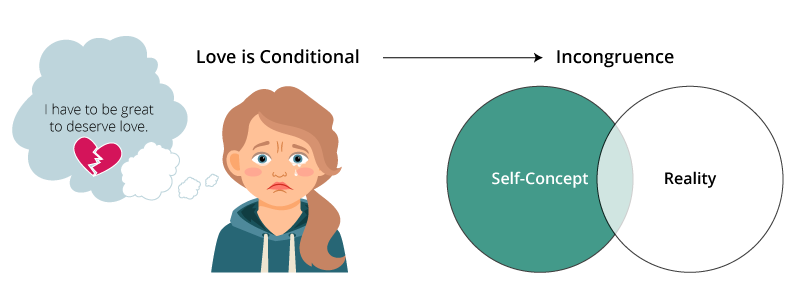Person Centred Theory “concept of Self”
The cornerstone of Person Centred Theory is the self-concept, our own mental representation of who we are.
It is a collection of beliefs we hold regarding our nature, our unique qualities, and typical behaviours. When choosing an action, we implicitly or explicitly invoke our self-concept to guide our behaviour: What would a person like me do in a situation like this?
Incongruence
Incongruence is the disparity between the self-concept and experience.

Rogers believed that incongruence results from the belief that affection is Conditional — that Love must be earned.
- refer to Milgram Experiment
As members of a social species, we all have the need to be loved and accepted by others.
Belief in Unconditional Love:
If you believe that love is unconditional, then there is little motivation to conceal your inadequacies from yourself and others, and so incongruence is relatively small. This is where the phrase “Unconditional Love” or “Unconditional Regard” comes from, and why it’s thought to be so important.

Conversely, if you believe that love is conditional, that others will only value you if you are worthy enough, then mistakes and weaknesses must be disguised and hidden through distortion of reality — the greater the belief in conditional love, the greater the distortions of reality, the greater the incongruence in the self-concept.

What results from this process, according to Rogers, is severe and recurrent anxiety. Note the anxiety experienced by the man in the video during the experiment and upon confronting his role in it.